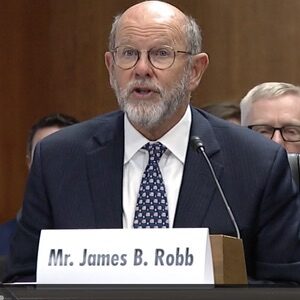When the U.S. Senate approved the Inflation Reduction Act, Sen. Bob Casey (D-Pa.) celebrated the legislation as “the most ambitious climate bill the Senate has ever passed.”
Casey said he supported the Biden administration’s goal of reducing power from coal and natural gas sources. “It will shore up the U.S.’s place as a clean energy producer and reduce our greenhouse emissions by 40 percent by 2030,” Casey said, “while investing in the coal communities that powered our nation for generations.”
But last week, senators on the Energy and Natural Resources Committee heard a very different story. The retirement of fossil fuel electricity production and the lack of reliable renewables to replace it are putting America’s grid at risk. That includes the possibility of rolling blackouts and widespread deaths from a loss of power.
For example, the regional grid operator PJM projected 40 gigawatts of electric production to be retired by 2030, about one-fifth of its current installed capacity. More than half of that loss comes from what it termed “policy-driven retirements.”
Last week’s committee hearing was called to “examine the reliability and resiliency of electric service in the United States in light of recent reliability assessments and alerts.” The news was ominous.
James Robb, president & CEO of the North American Electric Reliability Corporation, told senators the electric power system “is absolutely at an inflection point right now.”
The grid, Robb said, needs to be able to hold up especially well when demand surges, and residents call for huge amounts of electricity. He argued that novel new forms of electricity production “can’t do that nearly as well as large, spinning mass generation.”
“And that’s why the loss of coal plants and natural gas plants and nuclear plants is so concerning from a grid reliability perspective,” he said.
“Grid transformation” has occurred throughout the U.S. for years as increasing numbers of reliable coal-fired power plants are retired, and renewable energy methods take their place. Activists claim the rapid shift away from carbon-based fuels to green energy is necessary to prevent the theoretical effects of climate change in the coming century.
David Tudor, CEO of the midwestern Associated Electric Cooperative, predicted the rapid retirement of fossil fuel power plants could bring about population-level deaths in the U.S.
“My concern is, you’ve got a gap period here that we have this push for new renewables and this push to shut down plants that work, and there’s nothing there in the middle to save us,” he said.
“I fear we are going to have blackouts, and I’m afraid we’re going to see a significant number of lives lost.”
Grid warning signs have been flashing at the state level as well. A panel of experts told the Pennsylvania Senate Environmental Resources and Energy Committee last month the state and the region were facing near-term power shortages due to the retirement of legacy plants in favor of newer, untested renewable source generation.
State Sen. Gene Yaw warned at the hearing that “short-sighted environmental policies” have “forced fossil fuel plants into nonexistence, resulting in fewer reliable energy sources to shoulder the burden of increased demand on Pennsylvania’s electrical grid.”
Also of concern is the number of jobs in Pennsylvania and elsewhere supported directly or indirectly by fossil fuels. A recent report found that fossil fuels, directly and indirectly, support over 400,000 jobs in Pennsylvania alone and millions across the country.
Neither of Pennsylvania’s federal senators appeared concerned about the possibility of electricity shortages in the state or nationwide. Casey, who did not respond to requests for comment, has supported the use of “tax credits for companies to build American-made clean energy facilities” and called upon the state to “increase the use of renewable energy” to address the climate crisis.
Sen. John Fetterman, meanwhile—who also did not respond to requests for comment—has claimed that the U.S. needs to “transition to clean energy as quickly as possible.” The freshman Democratic senator has shown a willingness to play politics on the question of energy, having reversed his position on fracking during his contentious run for Senate last year. But he has also supported extreme policies like carbon caps as a way to mitigate the possible dangers of climate change.
After the Senate hearing, Rich Nolan of the National Mining Association released a statement saying it was “impossible to listen to the testimony this morning, including from the nation’s top reliability regulator and from the CEO of our largest grid operator, and not conclude that we’re pushing aside existing, dispatchable generation – namely the nation’s coal capacity – far too quickly.”
“We are already in a grid reliability crisis, and the EPA’s regulatory onslaught is making an extraordinarily challenging situation all but unmanageable,” he said.
The U.S. Energy Information Administration said most electrical generation in the U.S. continues to come from coal, natural gas, nuclear energy, and petroleum. Just around one-fifth of the total generation comes from renewables.
Robb told the senators his industry is doing its part on the infrastructure side to move the power, but that doesn’t solve the problem if there’s no power to move.
“The electric transmission grid is highly reliable and resilient,” he said. “Yet the risk profile to customers is steadily increasing.”
Please follow DVJournal on social media: Twitter@DVJournal or Facebook.com/DelawareValleyJournal


